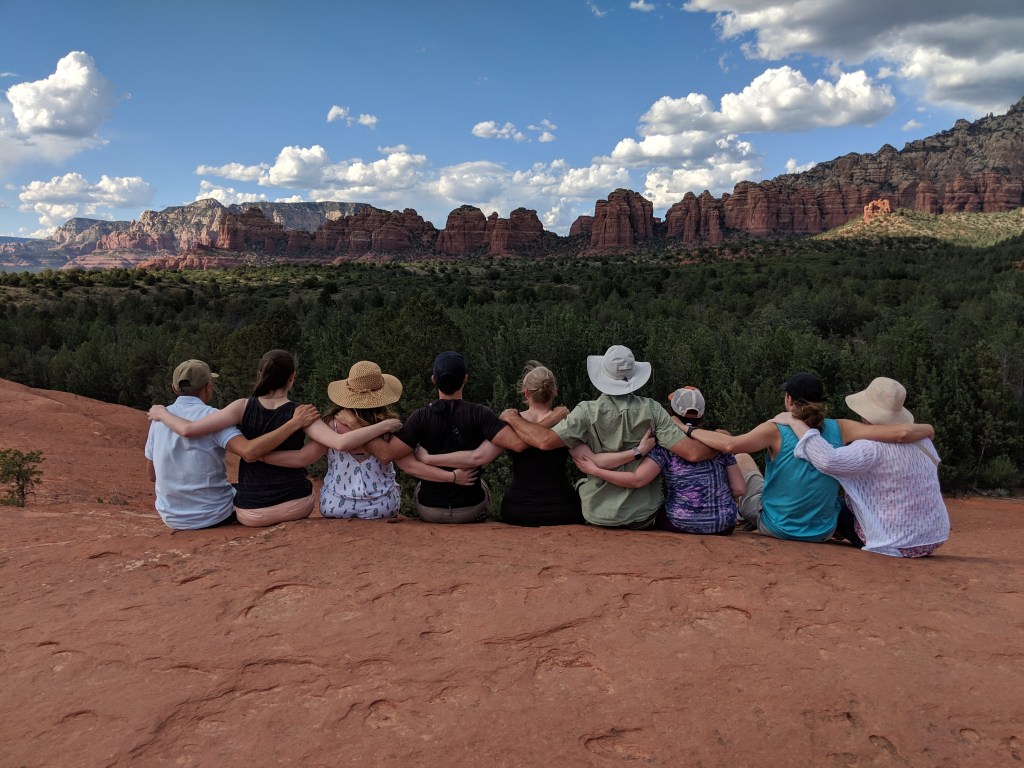An important part of building strong remote work culture involves meeting in person at least once a year. It’s a valuable tool with countless benefits. This year, we wanted to change things up from the traditional all-staff retreat and empower our individual scrum teams to plan out their own retreats. To help us learn as we go, we’re doing a breakdown of each retreat as they happen – you can learn more about these retreats in our previous article on Team Delta’s retreat to Washington, D.C. This time, it’s Team VIP, and a retreat in Phoenix, Arizona.
Each team can organize around their unique commitments and workload, which limits most interruptions to the team’s productivity. And planning around a smaller group gives everyone the opportunity to have their opinions heard – with a little compromise, you can ensure that the trip’s logistics work around everyone’s schedule and travel preferences.
As our biggest team, VIP knew they had to get creative with their planning. How do you accommodate a group of 9 people without resorting to a (dare-we-say boring) traditional hotel meeting space? With a little thought, VIP found a great answer: they booked two vacation homes close to each other and rented a van to shuttle people to the largest one each day. Luckily, one of their team members happened to have the right kind of license to drive it! That gave everyone a place to work and meet without having to book an additional space, keeping the retreat under budget. Everyone also had their own bedrooms to go back to at the end of the day, whichever house they were in – it’s important to consider this, as even on a retreat, everyone appreciates having a private space to go back to after a long day.

Creating a space where the entire team can get together is important to any successful retreat. Use the retreat as an opportunity to get out of your comfort zone and work together on projects in real-time. You’ll all learn new things about each other while solving problems you’d normally have to work on alone or at least in different physical locations. We find that we get a lot more done if we’re in one place, swarming on the same tasks and focused on the same goals.
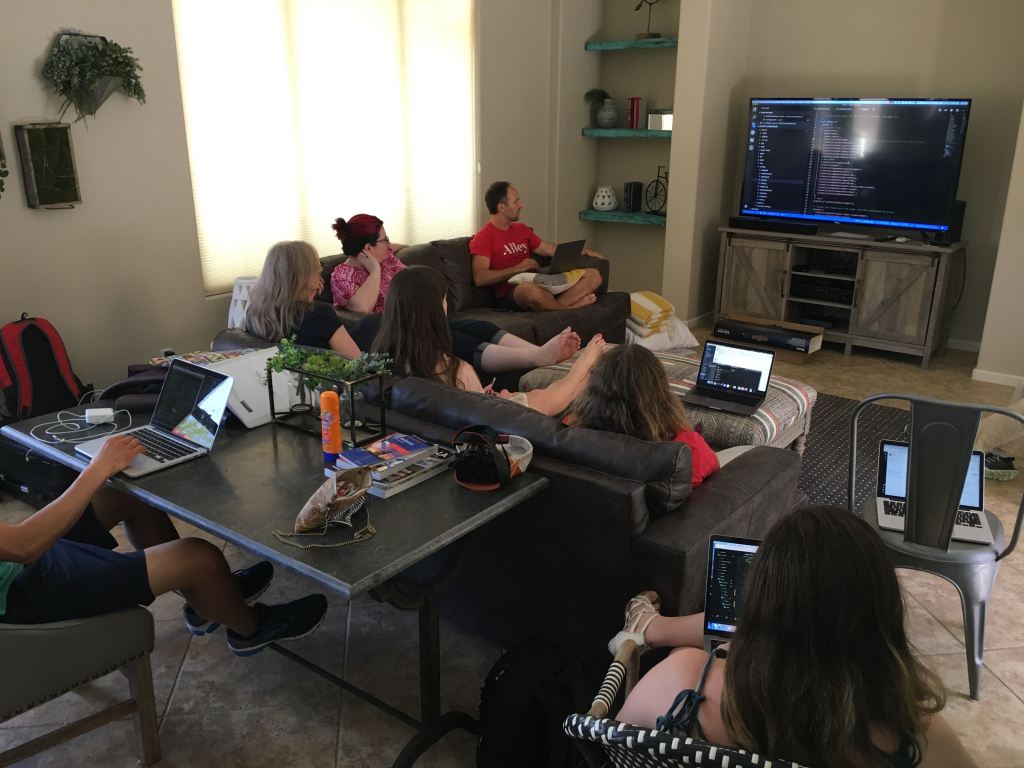
Here’s Team VIP reviewing some code together in a cozy living room.
We may get a lot done, but retreats aren’t just about being heads-down on work. Definitely set aside time to share some of the cool things you’ve worked on in the past or interesting solutions you’ve come up with, which could help the team on their own projects. Part of building a strong team means being open to radically candid feedback and keeping work visible. By showing your work (which is very easy in a communal setting), you can inspire your teammates and possibly find solutions to new issues that share commonalities.
Apart from working together, retreats also let us hang out together and, of course, eat together. You can stretch a budget by shopping locally and using your location’s kitchens to cook team meals. It’s a great way to save money for other fun activities and incorporate non-work-related team-building activities throughout the day.
Check out how Steven Slack helped cook a healthy breakfast for the team:
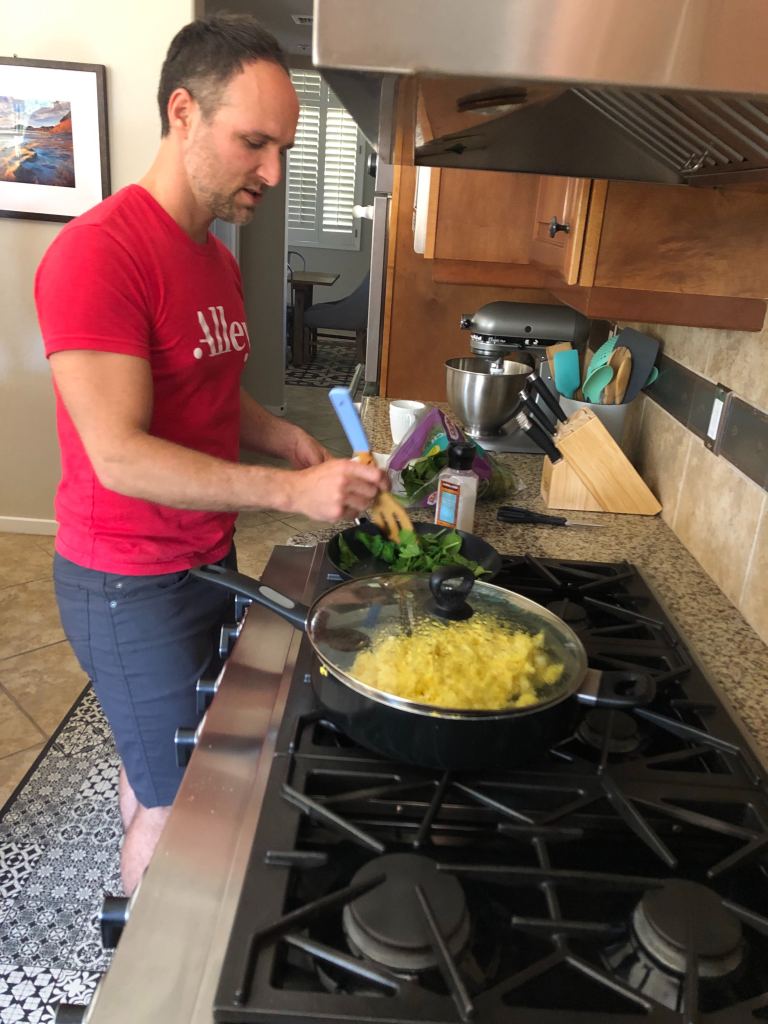
Steven Slack, software developer, cooking up some eggs and spinach on a stove.
Not exactly ready to be a contestant on the Great British Bake Off? That’s okay too – a carefree team dinner at a restaurant is another great way to break up the itinerary and encourage some more personal conversations. Focus on having open and honest conversation that you aren’t always able to have in your day-to-day work life.
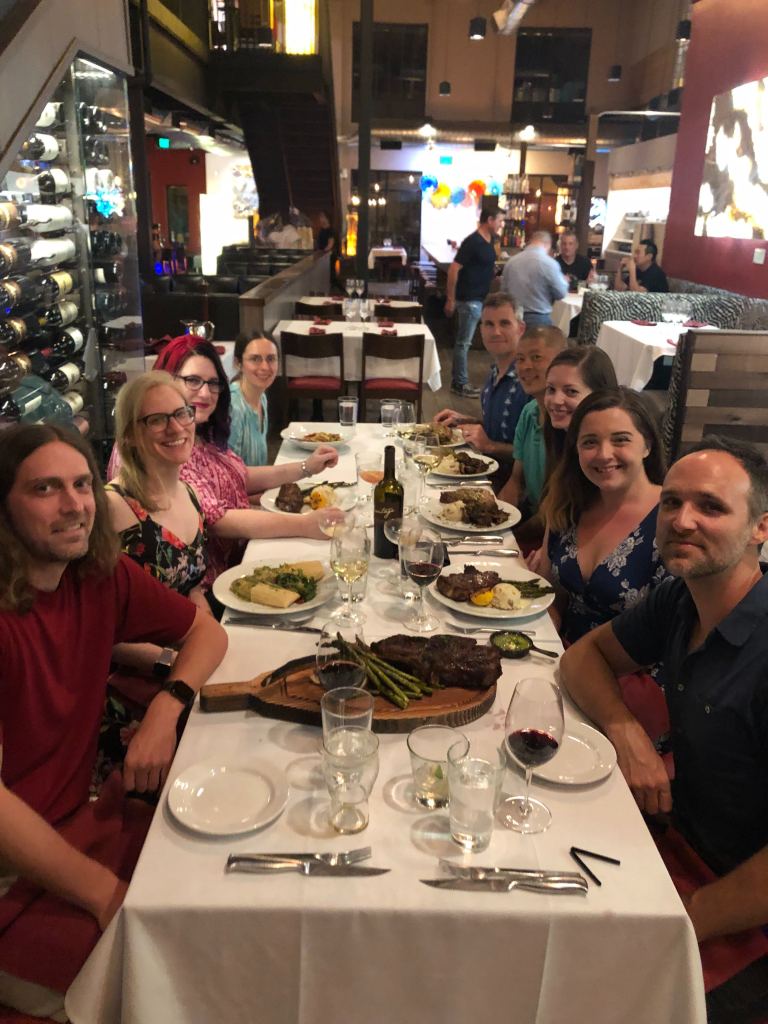
It’s important to intersperse other group activities throughout the retreat. On top of family-style meals, VIP got together on their last day to go on a jeep tour adventure in the Sedona desert and red rock buttes.
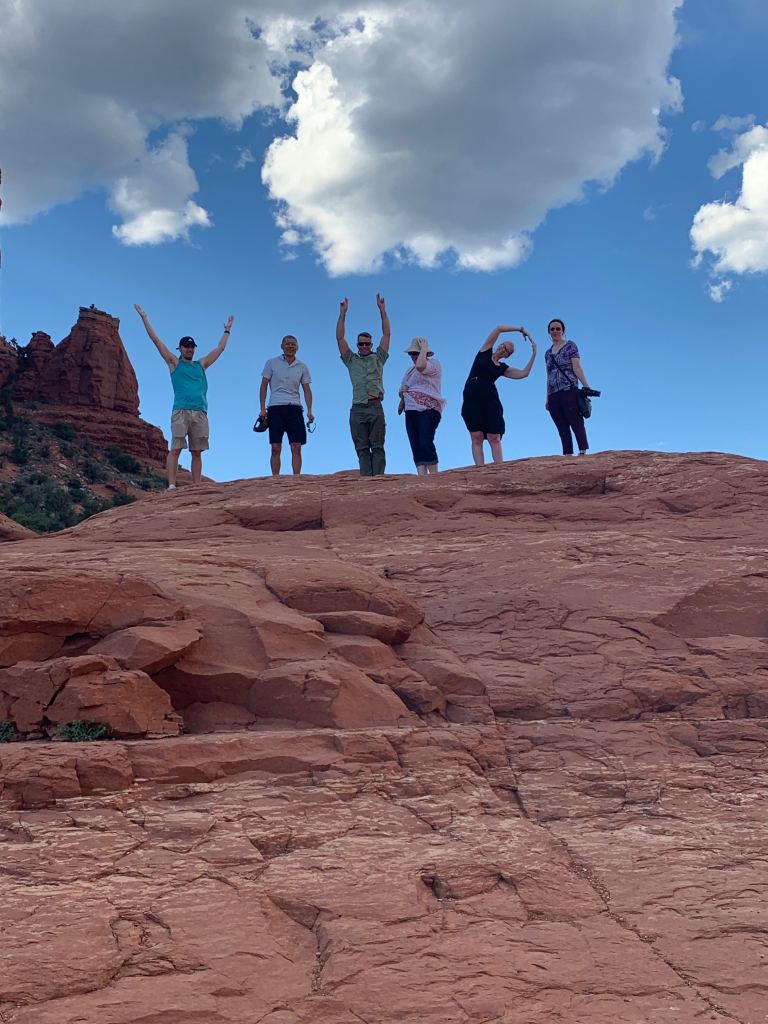
Getting away from a computer helps everyone clear their minds and lets some fun slip into your schedule. You should leave a retreat with a bunch of inside jokes and great memories. Team VIP definitely did – we still don’t know what they’re talking about half of the time, but they do, we think.
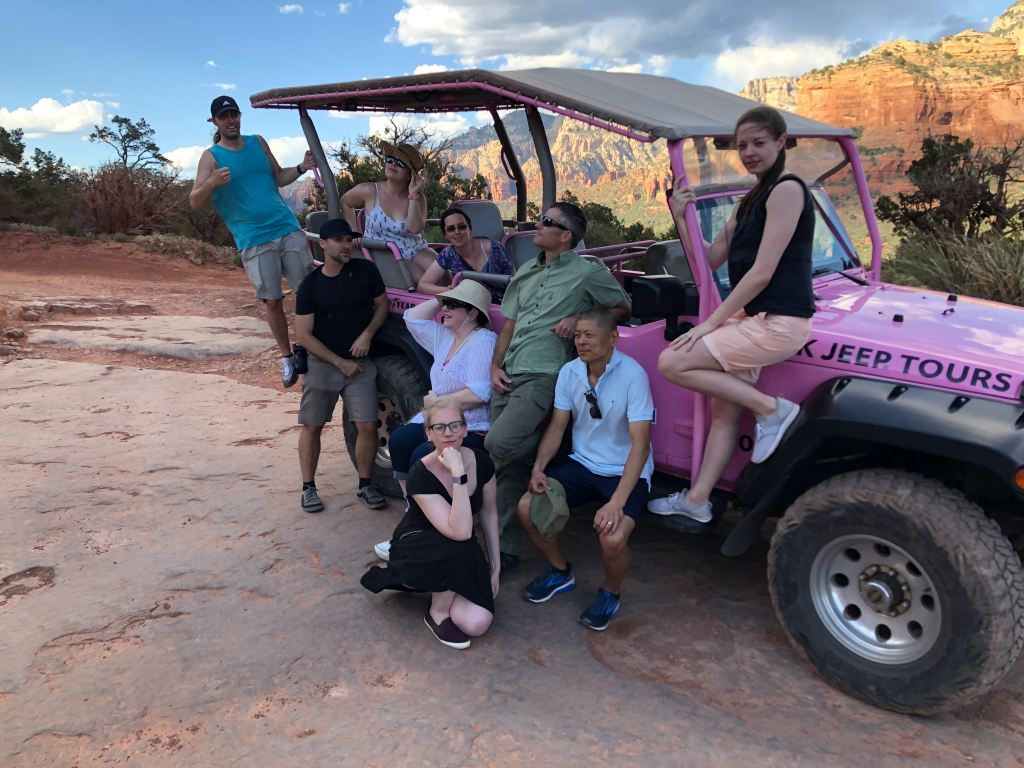
Organizing around a pre-planned event like a tour or local experience is a great way to take the burden of planning off of the team and allows the group to focus on having fun rather than organizing it.
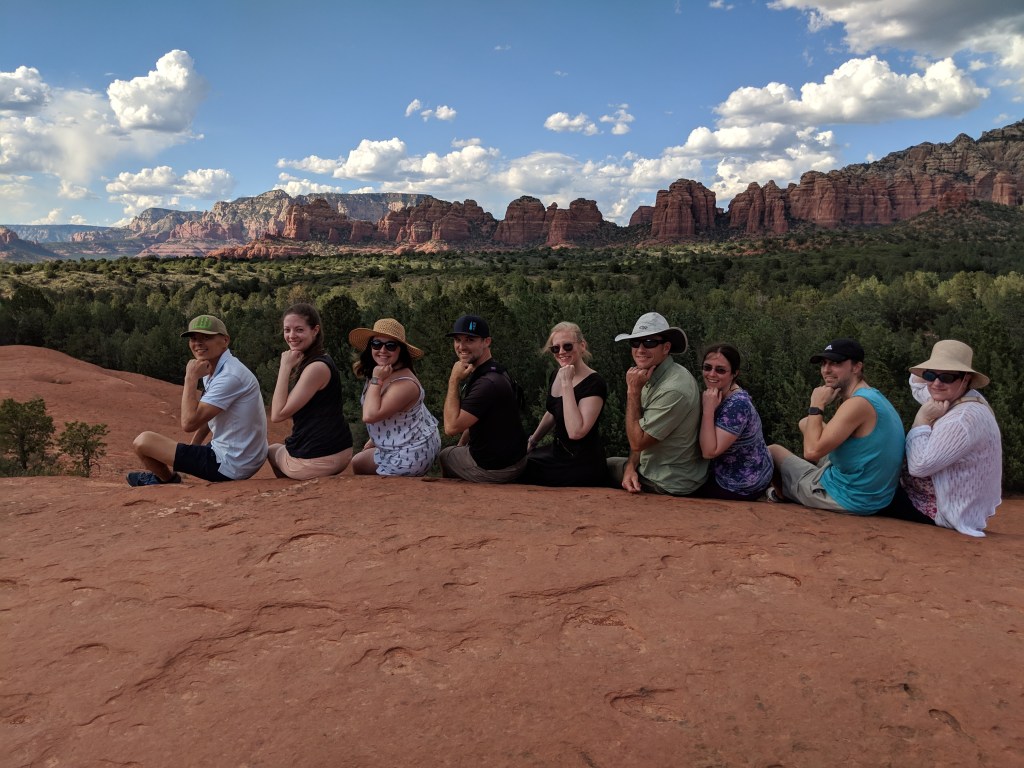
As you plan, you should be mindful of people’s alone time requirements. You want to make sure to give everyone breaks. Don’t forget that they have families and friends to check in on and a life outside of work that they have to maintain.
As a fully-distributed organization, Alley has the ability to build great teams that aren’t limited by geographical constraints. Remote teams are nimble and solve complex challenges asynchronously. However, in order to produce our best work, we need to know our colleagues and trust them as closely as we would our close friends. That’s why we’re excited to continue sending each of our teams out on intimate retreats. The goal is to give all members an opportunity to organize around issues specific to their projects while strengthening internal culture, and retreats like VIP’s are clearly big successes. If you’d like more information on the activities they took part in or more planning tips, reach out to us on Twitter at @alleyco. Or, you can keep checking our blog for more retreat retrospectives as they happen this year!
